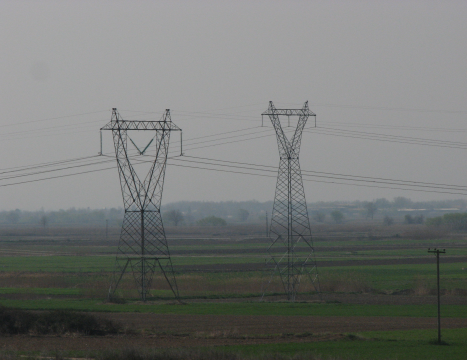
Sign up for our newsletter to receive the latest news and information from publics.bg
News
From Bulgaria

 07.04.2014 17:11
07.04.2014 17:11
© publics.bg
New evidence presented by the state-owned National Electricity Company (NEK) in its debts dispute with electricity supplying utilities managed by CEZ, EVN and Enrgo-Pro has led the energy regulator to postpone for end-April its final decision on whether to cancel their licenses. The meeting was attended by ambassadors and chargés d’affaires of Austria, the Czech Republic, France, Germany, Italy and Spain. Representatives of the Bulgarian Photovoltaic Association were not allowed in the meeting hall, despite the fact that they are also indirectly involved in the matter, some of the mutual debts between the utilities and NEK coming from the renewable energy stimulation scheme.
The representatives of CEZ, EVN and Energo-Pro’s Bulgarian offices called for the State Energy and Water Regulatory Commission (SEWRC) stop the license revocation procedure, as they have not violated their licensing terms. What is more, the dispute is of strict commercial nature, while the state regulator only deals with administrative matters.
“Commercial matters settled by a contract between two licensed parties fall outside the competences of the energy regulator. What is more, the regulatory commission seems to be taking into consideration solely the downfalls for the National Electricity company”, Kremena Stoianova, BD chairperson of CEZ Electro Bulgaria stated.
Nevertheless, CEZ is the only one of the three utilities, to have achieved some form of dialogue with NEK, it surfaced during the meeting. The utility said it urged the regulator to act as intermediary in the talks, which however have not given any results yet. CEZ has also paid 35 out of the BGN 75 m it owns to NEK.
“We have been made aware of the willingness of CEZ to sign a settlement but we have not yet agreed on the formulation of the contract”, Ekaterina Istatkova, CEO of NEK said. Ms. Istatkova was rather laconic in her statements, maintaining the position that withheld payments to NEK meant a voluntary destabilization of Bulgaria’s power system.
Electric utilities were accused of withholding some BGN 318 m from payments due to NEK for electricity, which is said to disrupt payments from NEK to electricity producers. The three utilities explained that they were forced to take this measure because NEK failed to compensate them for the renewable energy they are obliged to buy by law. Utilities also argued that restraining payments to NEK due to reciprocal debts was not a practice prohibited by Bulgarian law.
“We acted according to the law and to the public interest, Should we not have withheld some of our payments to NEK, the security and constancy of electricity supply would have not been guaranteed”, Stefan Abadzhiev, manager of Energo-Pro explained.
Joerg Sollfelner, regional manager of EVN Bulgaria, stated that electricity distributors refuse “to be held responsible for huge financial deficits caused by bad state energy policy and the lack of a comprehensive renewable energy compensation tools which will distribute the expenses evenly along the production-distribution-supply chain”. According to Mr. Sollfelner, these multi-million deficits would not vanish with the mere removal of current electric utilities.
“The uncertainty around to whom, how and why electricity consumers will pay their bills would only rise, in case an extraordinary manager is appointed”, Mr. Sollfelner said.
If the situation escalates to a point where regulator cancelled the licenses of the utilities, an “extraordinary manager” would be appointed. Distribution grids and other assets however will remain property of their current owners.
Two of the utilities – EVN and Enrgo-Pro have already taken the matter to an international arbitration court.
The next hearing of all concerned parties was scheduled for April 28.
 All news from Bulgaria
All news from Bulgaria








 Interview
Interview 
 Full text
Full text Events
Events 


